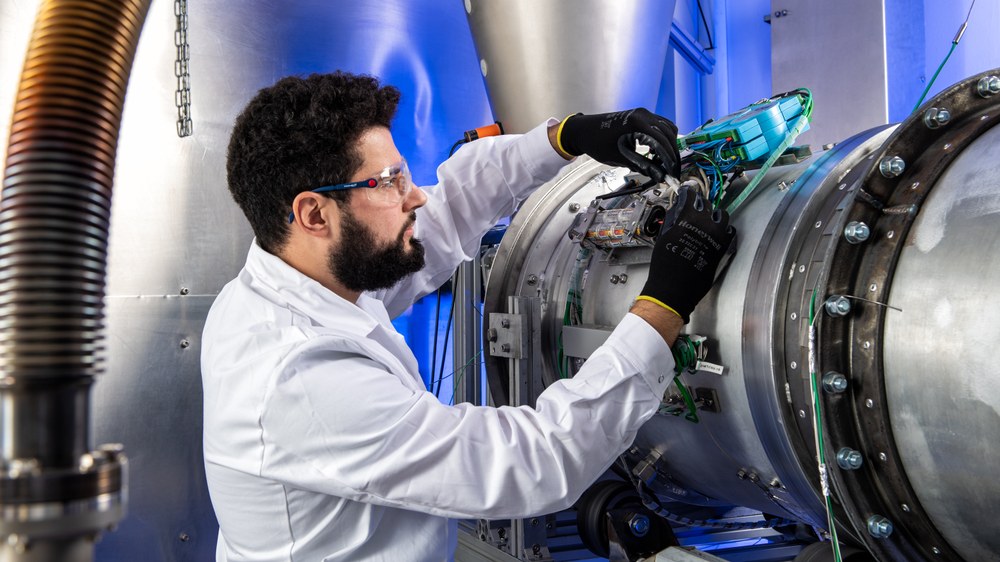Solar chemical process development

The Department of solar chemical process development brings technologies for the sustainable production of fuels and chemical base materials from the laboratories into application, thereby making a substantial contribution to reducing or even completely avoiding the emission of greenhouse gases such as CO2 in energy-intensive processes.
Materials, components and production processes to reduce greenhouse gases
The industry urgently needs practicable solutions that make it possible to integrate renewable energies and, in particular, heat into processes for the production of fuels such as hydrogen and synthetic fuels as well as chemical base materials in order to reduce greenhouse gas emissions. We qualify suitable materials, components and processes for this and test them with regard to their practical suitability.
The department works primarily on key components of such production processes, such as chemical reactors, solar reactors and solar absorbers, heat exchangers, special reflectors and functional materials such as redox materials and high-temperature ceramics.
Reactor development for the production of sustainable fuels
In our work on reactors for thermochemical water and CO2 splitting, our focus is on scaling them up from laboratory scale to industrially usable size and increasing their efficiency. We are aiming for a system efficiency of 10-15 per cent. The central element of the reactors is a fixed or movable monolithic ceramic absorber that absorbs the thermal energy. The absorbers are manufactured at the institute as porous, three-dimensional structures with high stability from a specific material suitable for the respective process. We use redox materials and catalysts that are as durable as possible.

CO2-management
We are researching the use of renewable energy, in particular solar heat, for the capture, concentration and utilisation of CO2 in connection with energy-intensive processes in basic material production and the chemical industry.
One of the technologies used for this is based on a limestone-based calcination/carbonation cycle. In the cement industry, for example, the cycle is suitable for capturing the CO2 produced and compressing CO2-containing exhaust gases. We are using numerical methods and experiments to investigate whether this process is also suitable for removing CO2 directly from the atmosphere (Direct Air Capture, DAC) and are looking at processes for extracting and utilising CO2 from exhaust gases (Carbon Capture and Utilisation, CCU). We also examine the technical possibilities for using CO2 as a starting material for the production of chemicals and carbon fibres and verify these in laboratory experiments and in application-oriented demonstrations. Our particular focus is on potential applications for the Rhenish mining area.
We are also working on improving and scaling up solar-powered rotary drum kilns. In the cement industry, for example, the raw materials for cement production are calcined and fired in rotary drum kilns. As the kilns rotate continuously, the material inside them can be heated evenly. In our projects, we are scaling up the technology to a scale of over 100 kilowatts in order to demonstrate it.
Research for the agricultural sector
A third overarching topic of the department deals with the production of "green fertilisers" based on nitrates, phosphates, sulphates, sulphur and lime.
Integrated production, which aims to skilfully and effectively link intermediate products and energy flows from different production units and product lines, is of particular importance. One example of this is the production of nitrate fertiliser. Here it is possible to utilise hydrogen, oxygen and nitrogen as by-products and intermediate products and integrate them into other process units.



